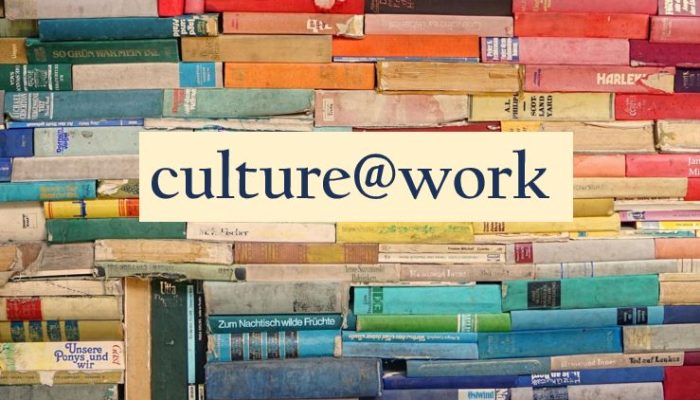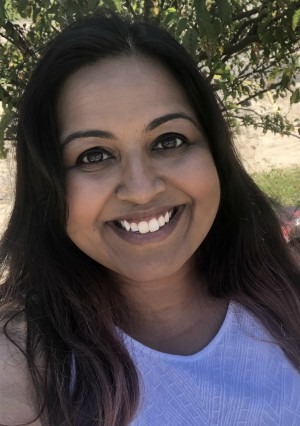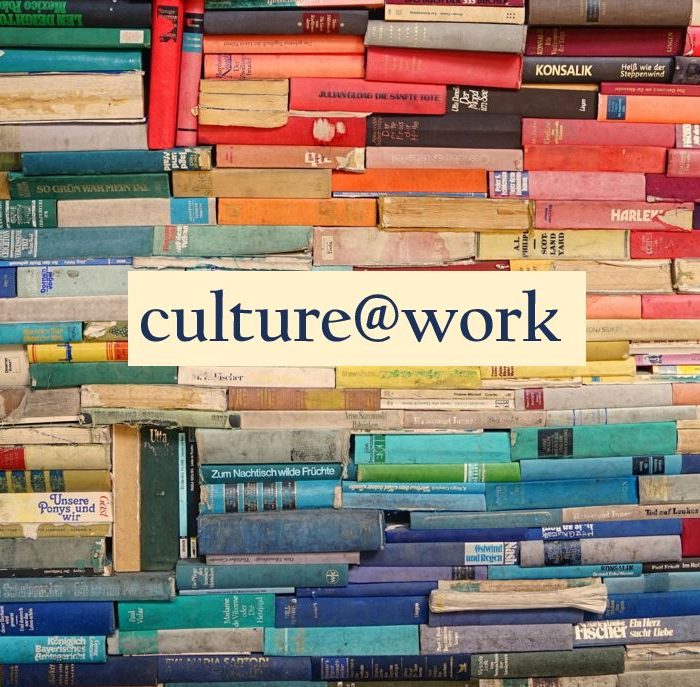Ling Lam is an assistant department head at the Toronto Reference Library.

Cultural diversity and inclusion in the workplace
Welcome to culture@work, brought to you by the OLA Cultural Diversity and Inclusion Task Force. This column showcases diversity in library work in Ontario by introducing Open Shelf readers to library staff from around the province. By highlighting the experiences of library workers, we hope readers will get to know more of their OLA colleagues and perhaps be inspired by, if not more informed about, issues of diversity in librarianship in Ontario, and perhaps beyond.

Name: Suzanne Fernando
Title: Services Specialist, Children’s Services, Service Development and Innovation, Toronto Public Library
1. Where do you work?
I work for the Toronto Public Library (TPL) in the Children’s Services Department. In this role, I coordinate system-wide initiatives for children. The topics range from author talks to writing workshops to STEM programs! Coordinating library programs for children in Toronto is rewarding and fulfilling work. During the pandemic, many of our programs have gone virtual, and I’ve been part of the team creating and coordinating these virtual programs, both live and pre-recorded. It has been a great opportunity to work with new platforms and gain a new appreciation for what goes on “behind the scenes” of video editing and production.
2. Tell me a little about yourself. Why have you chosen to work in libraries? How did you end up working in libraries?
I worked in libraries throughout high school and university, but did not initially consider librarianship as a career choice. My undergraduate studies were pretty interdisciplinary—majoring in health studies and psychology with a minor in English literature. After a job in the academic advising office on campus, I was inspired to pursue a master’s degree in adult education and community development. I worked a variety of jobs in the field of education—college advisor for newcomers, research study assistant, accessibility services exam assistant—but my love for libraries remained, and I continued to work part-time at the library. Three years after working in education I had my eureka moment—libraries were the perfect mix of my passion for both communities and education. I was offered a job at a registrar’s office and a spot in library school within the same week. I chose library school and haven’t looked back since!
3. Tell us about cultural diversity and inclusion. What do you think libraries can do to be more inclusive? Have you faced any barriers? Why do you think diversity is important for our library communities?
Cultural diversity and inclusion is so important to me. I believe that we must use the lens of inclusivity to guide all of the work we do in the library sector. I have had the privilege of being closely involved with the Equity and Diversity Committee at TPL, and some great initiatives have come out of its work. For example, last year we coordinated staff training on ageism in the workplace. It was a great opportunity for staff to discuss any barriers or challenges they have encountered due to their age. After all, diversity and inclusion is about the intersectionality of one’s identity—this includes considerations of age, gender, ethnicity, sexuality, culture and beyond.
I recently read a blog post which talked about how there is no true diversity if different skin colours are welcomed, but not different cultures. In the context of libraries, I would take this one step further and say that the experiences of different cultures must be incorporated into our libraries without othering, but with celebration. Programs for our patrons must represent their lived experiences as much as possible. Diversity is important for our library communities because the world we live in is diverse! Folks with diverse experiences must feel welcomed and embraced in library spaces.
4. What continues to inspire you on the job/in your career?
My work is dedicated to ensuring that children in Toronto can experience programs that represent a wide range of experiences, and that keeps me inspired everyday. This includes approaching our programming through a lens of cultural diversity and inclusivity. I am continually inspired by all the amazing work of my colleagues, who also strive to make diverse voices heard. My colleague and I recently hosted an author talk for kids that discussed issues around clean water access for Indigenous communities in Canada. These are important conversations for families to have with their kids, and I’m so honoured that I get to play a role in helping to facilitate and encourage these kinds of conversations to occur.
Outside of Toronto Public Library, I am involved with the OLA’s Cultural Diversity and Inclusion Committee and the Visible Minority Librarians of Canada Network. I have also been a volunteer for We Need Diverse Books and Librarians Without Borders. Staying connected to the broader library community also keeps me inspired!
5. What piece of advice would you give to diverse librarians beginning their career as well as to those librarians in their mid-career?
One word: Connect. Make connections with folks connected to libraries whenever and wherever you can. These connections can often happen outside of the library as well; institutions like museums, colleges, universities and the corporate sector are all places public librarians can learn from. For example, a program supporting diversity and inclusivity in another library system may work in yours if it’s the right fit. Another great way to make connections is through conferences, lectures and community events. I heard about the organization We Need Diverse Books at a lecture, and it has provided me with a volunteer opportunity and a rich resource to discover diverse books and authors for children.
6. What work do you think librarians in Ontario need to do to work towards positive social change?
Positive social change comes out of feeling connected to each other and advocating for those who do not have a voice. Librarians who provide opportunities for community members to have a voice are helping create an opportunity for positive social change. For example, I worked at a library branch that provided a digital storytelling program for seniors. The end result of this workshop series looked like a beautifully produced video piece, but it was actually the friendships, connections and confidence with new technology from this program that will have a lasting effect on the patrons. To me, this is social change—creating an opportunity for community members to feel empowered and be engaged citizens. Librarians who have a pulse on what’s happening in their local community will be able to support positive social change in their community.
The OLA Cultural Diversity & Inclusion Task Force mandate is to initiate, advise and mobilize support for appropriate action plans related to issues of cultural diversity in libraries within Ontario including recruitment, advancement and retention of underrepresented groups in libraries.
